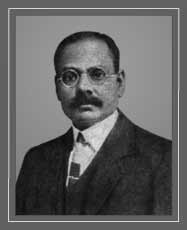
Professor of Geology & Chemistry in College of Engineering, Deccan Gymkhana, age 53, Brahmin, Poona.
10th, 20th, 25th, 28th May 1936.
So much can be easily said of Sai Baba by all - mere observers from outside. But he who judged of Baba by the outside alone would be greatly mistaken in his estimate. Baba was, of course, adapting himself to the capacity of people that resorted to him for help and protection. Most of them were superficial people - seeking mostly some material gain or advantage; and to them he did not reveal his inner nature. But when anyone capable of diving deeper came to him he revealed more of himself and his powers. I was keenly observing him from the first and he noticed it and encouraged my habit of observing and judging complimenting me as "Hushiar" or "Clever". On occasions he told me "what a 'Dubya', i.e., sluggard you are" - evidently referring to my failure to penetrate beneath the surface of things on those occasions. Baba was not the man to stifle legitimate inquiry. Everything he did or said was full of significance; mostly I could understand them.
To one deeply observing him, the startling fact came out into greater and greater prominence that Baba was living and operating in other worlds also, besides this world and in an invisible body. Remarks made by him openly would be treated as meaningless ranting by those who did not know him. His language also was highly cryptic - full of symbology, parable, allegory and metaphor. Literal interpretations of them would be made by superficial people - who would then conclude that Baba was a worldly man amongst worldly men and a very avaricious man at that. For instance, a man came to Baba and watched him for a time; and I asked him what impression he formed of Baba. His answer was, "I never saw any saint talking of money all the hours of the day" and he felt disappointed. This man did not know that "Paisa" - money, was used by Baba to denote Punya, Apurva or merit, very often. But on a careful observation and analysis of his talks, one must conclude that his nature, powers and functions were very great and that the way in which people would benefit by his guidance and help would also be peculiar.
4th June, 1936.
In 1914 or thereabouts, a rich old gentleman of Harda came with a lady to Shirdi. He was suffering from T.B, i.e., consumption. During the space of one month, there was noticeable improvement in his health. So he made Shirdi his residence. At the end of the second month, he grew worse and his end seemed to be approaching. One day the ladies of his house and their friends told me that his condition was critical and there was no senior male to go and ask Baba for help and sent me to ask Baba for his Udhi. I went up. Baba told me that the man would be better for quitting this earth. "What can the Udhi do? Anyhow take the Udhi and give it as it is wanted", he said. So I took and gave the Udhi but, of course, refrained from intimating Baba's words to anyone. The condition grew worse. Then Shama, (i.e., Madhavrao Deshpande) arrived and went to Baba and told him of the imminent death. Baba appears to have said, "How can he die? In the morning he will come to life". This was taken to mean that the old man would not quit the earth. So they placed lamps all round the corpse and waited till noon. Life was not restored to the corpse. Funeral ceremonies followed. The Harda genetleman's relations thought that Baba had given false hopes and went away from Shirdi. Then one day, a relative of the deceased saw Baba in a dream, with the deceased's head over his own (i.e., Baba's) and Baba disclosed the lungs - in a rotten state, and said, "From the torture of all this, I have saved him". Thereafter, he and his relations renewed their visits to Shirdi. Baba's words "How can he die? He will come to life" evidently referred to survival of human personality and taking up new forms of life.


